In today’s business landscape, there is an increasing emphasis on sustainability, social responsibility, and ethical practices. As a B2B digital marketing agency, it is crucial to recognize the value of Environmental, Social, and Governance (ESG) factors for businesses operating in various industries.
ESG assets have emerged as key considerations for companies aiming to enhance their reputation, attract investors, and build stronger relationships with their stakeholders. In this article, we will delve into the relevance of ESG assets in marketing for B2B industries and explore the benefits they can bring.
Defining ESG Assets:
ESG assets refer to a set of environmental, social, and governance criteria that businesses integrate into their operations and decision-making processes. Environmental factors include sustainable resource usage, carbon footprint reduction, and waste management.
Social factors encompass diversity and inclusion, labor practices, community engagement, and human rights. Governance factors focus on transparency, accountability, and ethical leadership within an organization.
The Growing Importance of ESG in B2B Marketing:
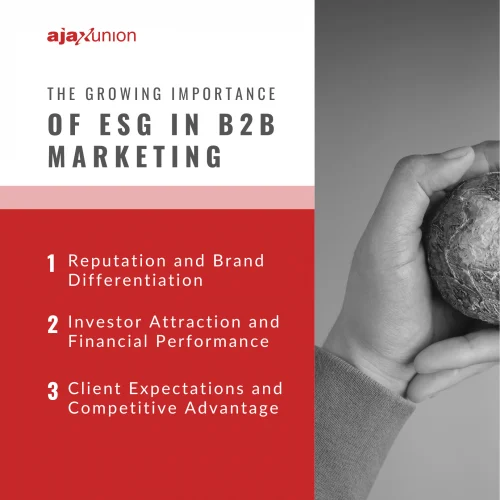
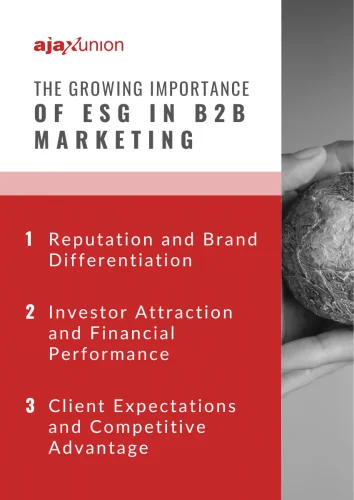
- Reputation and Brand Differentiation: Incorporating ESG practices enables B2B companies to establish themselves as responsible corporate citizens. By showcasing their commitment to sustainable practices, these companies can differentiate themselves from their competitors, enhance their brand image, and attract like-minded partners and clients.
- Investor Attraction and Financial Performance: Investors are increasingly considering ESG factors as indicators of long-term financial stability and risk management. B2B companies that demonstrate strong ESG performance are more likely to attract sustainable investment and capital, leading to improved financial performance and stability.
- Client Expectations and Competitive Advantage: B2B clients, particularly those with their own sustainability goals, are actively seeking partners that align with their values. Incorporating ESG assets into marketing strategies can help B2B companies meet these client expectations and gain a competitive edge in the market.
Leveraging ESG Assets in B2B Marketing:
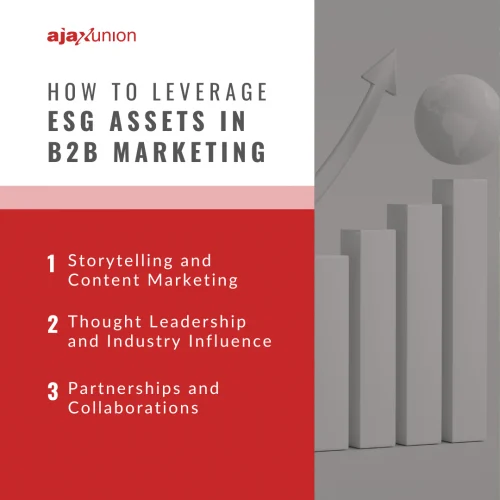
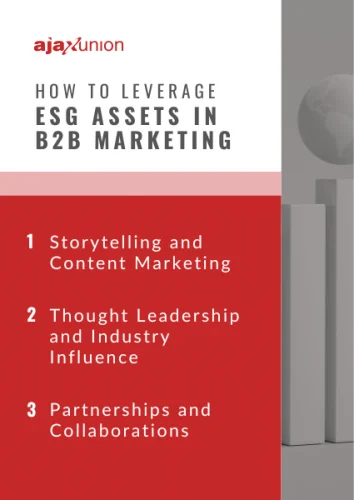
- Storytelling and Content Marketing: B2B companies can leverage their ESG initiatives to tell compelling stories that resonate with their target audience. By highlighting sustainability efforts, social impact initiatives, and responsible governance practices, businesses can create engaging content that strengthens their brand and appeals to clients who prioritize ESG considerations.
- Thought Leadership and Industry Influence: Establishing thought leadership positions B2B companies as experts in their field. By sharing insights and best practices related to ESG factors, businesses can demonstrate their commitment to sustainability and position themselves as leaders within their industries.
- Partnerships and Collaborations: B2B companies can form strategic partnerships and collaborations with other organizations that share their ESG values. Such alliances not only enhance brand reputation but also create opportunities for joint marketing efforts, expanding reach and visibility among target audiences.
Integrating ESG into B2B Marketing Strategies:
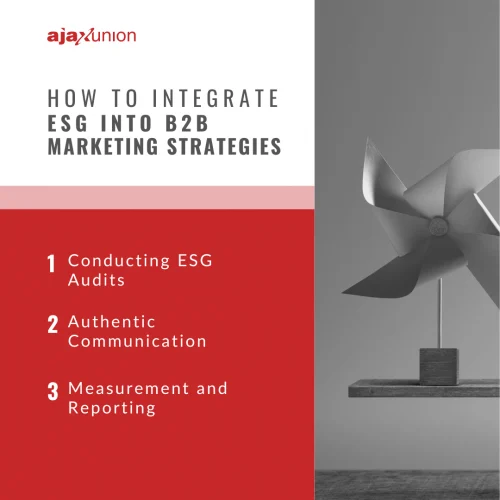
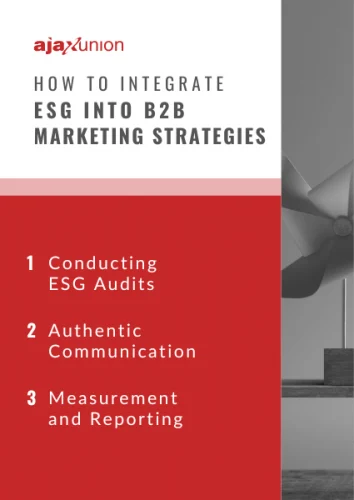
- Conducting ESG Audits: B2B companies should conduct comprehensive audits to evaluate their current ESG practices and identify areas for improvement. This assessment will guide the development of marketing strategies that align with the company’s ESG goals.
- Authentic Communication: Effective communication is key when promoting ESG initiatives. B2B companies should ensure transparency and authenticity in their messaging, accurately reflecting their ESG efforts and progress.
- Measurement and Reporting: Establishing key performance indicators (KPIs) and regularly measuring and reporting ESG performance allows B2B companies to track their progress and communicate their impact to stakeholders, investors, and clients.
As B2B industries increasingly recognize the importance of ESG factors, incorporating ESG assets into marketing strategies has become essential. By showcasing their commitment to environmental sustainability, social responsibility, and strong governance practices, B2B companies can enhance their brand reputation, attract investors, meet client expectations, and gain a competitive advantage.
Leveraging ESG assets in storytelling, thought leadership, partnerships, and collaborations can create meaningful connections with stakeholders and position B2B companies as leaders in their industries. Embracing ESG factors not only promotes a more sustainable future but also contributes to long-term business success.
Does your business need support creating ESG assets? Learn more about our ESG consulting services here!
For more helpful information on B2B Marketing check out our resource library.
